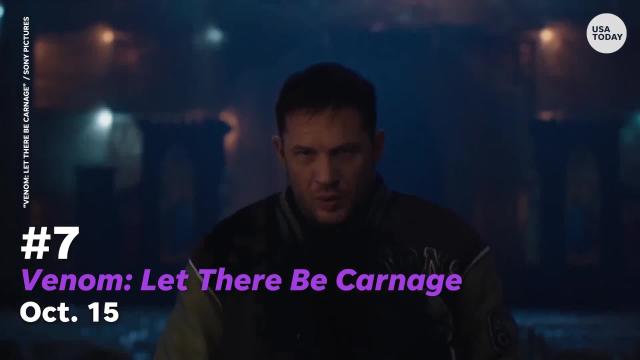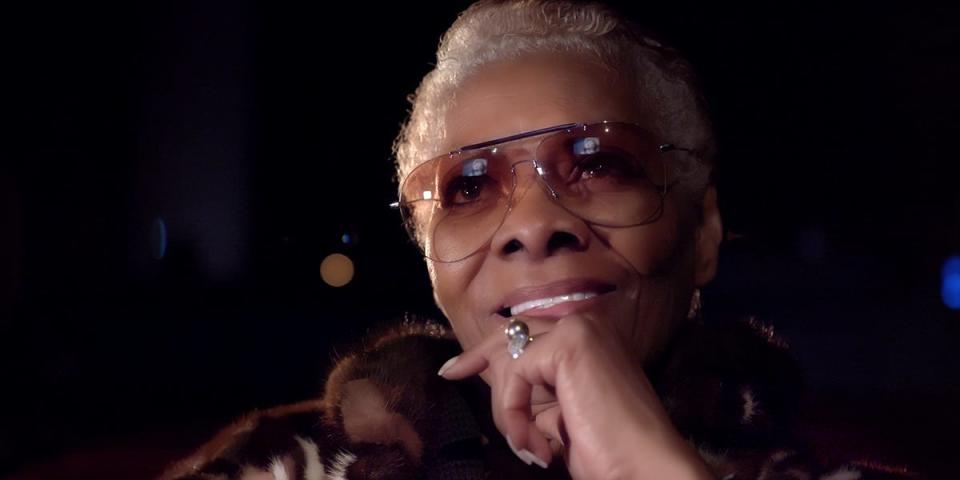Dionne Warwick chides DaBaby, weighs in on 'SNL' impression debuting new documentary

The moment you wake up – before you put on your makeup – say a little thank you to Dionne Warwick.
Why? As new documentary "Dionne Warwick: Don't Make Me Over" details, the singer did more than just fill countless eardrums with 1960s earworms. The 80-year-old star is a mother, activist, cousin and friend – with a boisterous Twitter account to boot.
Over a Zoom call, Warwick reminisces about her music career that transcended racial lines, at a time when music was as segregated as the rest of the country. "Didn't (all artists) do this?" she laughs.
The idea for the documentary, which premiered at the Toronto International Film Festival Saturday, grew out of working on Warwick's 2010 autobiography: "My Life, as I See It," which she co-wrote with Dave Wooley. Wooley wrote the documentary screenplay and co-directed with David Heilbroner.
More from Toronto Film Festival: All the best movies we saw at Toronto Film Festival, ranked (including 'The Eyes of Tammy Faye')

The film covers everything from her upbringing in East Orange, New Jersey, to performing at New York's Apollo Theater in Harlem, to the European tour that sent her career soaring.
But before it could soar, people had to know who she was – which was a problem, given the record cover of her "Don't Make Me Over" EP in Paris featured a picture of a white woman. When she stepped onto the stage at the Olympia in Paris, no one knew it was her until she opened her mouth.
"Once I started singing, they said, 'Oh my god, it is her!'" Warwick says.
Wooley notes there was no fact-checking then. And of course, "there was no Twitter," he says.
Following that tour – and after her hits penned by Burt Bacharach and Hal David like "Anyone Who Had a Heart" and "I Say a Little Prayer" dropped – Warwick appeared on programs like "The Ed Sullivan Show," unaware of barrier-breaking tectonic plates shifting for the entire music industry.
Toronto Film Festival: Amy Schumer is a revelation in first major dramatic role in 'The Humans'
"I never looked at it as being anything extraordinary," she says.
Warwick became the first Black solo female artist to win a pop category at the Grammys, in 1969 for "Do You Know the Way to San Jose" – though she refused to be pigeonholed.
"I fortunately from the very onset of my recording was never able to be put into a box. Because I couldn't be categorized. They didn't know what I was." Was she R&B? Opera? Pop? Jazz? "She is music," Warwick says. "That's what she is."
Warwick was – and is – never afraid to speak her mind. Even when dealing with discrimination in the segregated Jim Crow southeastern U.S. while on tour with Sam Cooke in the early 1960s, "I was taught nobody's going to stand up for you but yourself," Warwick says, noting she hadn't experienced that level of discrimination prior.
"Not to say that it wasn't there, but it was nowhere near what was experienced in the Southern regions of our country," she says.
The documentary also covers a confrontation between Warwick and artists like Snoop Dogg, whom she in the past has called out for misogynistic, offensive lyrics. He offers thoughtful words about Warwick in the film, as do Quincy Jones, Alicia Keys, former President Bill Clinton and Carlos Santana, among others.
"(Snoop Dogg) gave us an interview that was so inquiring and funny and smart, and respectful of her," Heilbroner says. "He just knocked this out."
Today, Warwick is taking artists like DaBaby – "whoever he is," Warwick scoffs – to task for his homophobic comments and AIDS misinformation.
"What he was doing was completely not only ugly, but stupid," Warwick says.
More: DaBaby meets with HIV organizations after homophobic comment controversy
Warwick was an early voice and advocate for AIDS research and went on to serve as a government-appointed health ambassador. Friends at the time thought she had lost her mind.
But "our industry was losing so many people," she says, including a member of her staff. "I felt that it was time to figure out why we're losing them, and those are the people that we needed most of all: lighting, sound, musicians, dancers, hair, makeup. It didn't make sense that nobody was interested enough to find out why."
Her 1985 cover of "That’s What Friends Are For" raised more than $3 million for AIDS research. Gladys Knight, Stevie Wonder and Elton John joined her on the tune – and also all appeared to give testimonials in the documentary.
Perhaps she could round up the group again if Lorne Michaels invited her to be a musical guest on "Saturday Night Live" (she loved Ego Nwodim's portrayal of her last season).
"Sure! Why not?" Warwick says. Time to say a little prayer.
Dionne Warwick talks artist compensation:Hey, radio stations, if you play my music, then pay me for my work
This article originally appeared on USA TODAY: Dionne Warwick reveals all in new documentary, weighs in on DaBaby